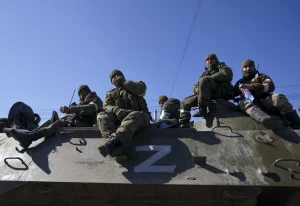
Keeping Russian aviation afloat: how much Moscow spends to compensate for sanctions?
Russia is dependent on foreign-made aircraft and faces the challenge of developing its aviation industry with only domestically produced parts
Reuters writes that Russia has allocated more than $12 billion in government subsidies and loans to keep its aviation sector afloat. Due to Western sanctions, the industry suffers from a shortage of key spare parts and maintenance services.
Now, Russia must develop its aviation industry only with domestically produced parts, while simultaneously buying aircraft from foreign lessors to avoid confiscation of most of its fleet.
According to Reuters, these costs are almost double the 547 billion rubles of payments made in 2020-21, when the COVID-19 pandemic caused a sharp decline in air travel, and underscore the extent of the Kremlin's efforts to take control of the critical industry.
"We plan to produce more than 1,000 aircraft by 2030, our own planes. Work is needed," Vladimir Putin said last week.
Russian airlines currently operate 991 aircraft, of which 405 are Russian-made, according to Swiss aviation information provider ch-aviation. However, only 133 are Superjets made by state-owned producer United Aircraft Corporation. Other Russian-produced aircraft - Tupolev, Yakovlev and Ilyushin - are rarely used for commercial flights.
The investment will at best keep the fleet operational, Western aviation analysts predict, but doubt that its aircraft will return to Western markets anytime soon, even if the conflict in Ukraine ends. This is due to the costs and bureaucracy involved in rebuilding a fleet with a clean and traceable safety history and approved parts.
The gray market for spare parts
Domestic passenger air travel in Russia began to recover in late 2022 as airlines found ways to import spare parts through the government's gray import scheme.
Most of the fleet of Western aircraft has been kept in the air, mostly by importing parts through third countries without the consent of the manufacturers, mainly Airbus and Boeing.
The loss of foreign spare parts and maintenance specialists is raising concerns about aircraft safety.
Some airlines have dismantled planes for spare parts, aviation industry sources told Reuters last year.
Russia has dipped into its reserve funds
In 2022 Russia spent 110 billion rubles to compensate airlines for losses from the sharp rise in the cost of aviation fuel. This year, Moscow raised almost 400 billion rubles for aviation expenses from the National Welfare Fund (NWF).
The scale of spending in 2022-23 is equivalent to just under 1% of the projected gross domestic product (GDP) for 2023. In 2022-23, Russia will spend an additional 2.3 trillion rubles on transportation development outside the aviation sector.
Moscow has also hastily localized the registration of its fleet and used NWF funds to buy planes from foreign lessors to avoid the risk of confiscation when flying abroad.
According to Transport Minister Vitaly Savelyev, 300 billion rubles could be used to buy back aircraft from foreign lessors in 2023.
However, a government document outlining strategic plans for aviation spending, seen by Reuters last fall, says Russia will have to spend at least 711 billion rubles to achieve "technological independence from foreign suppliers".
- News













































